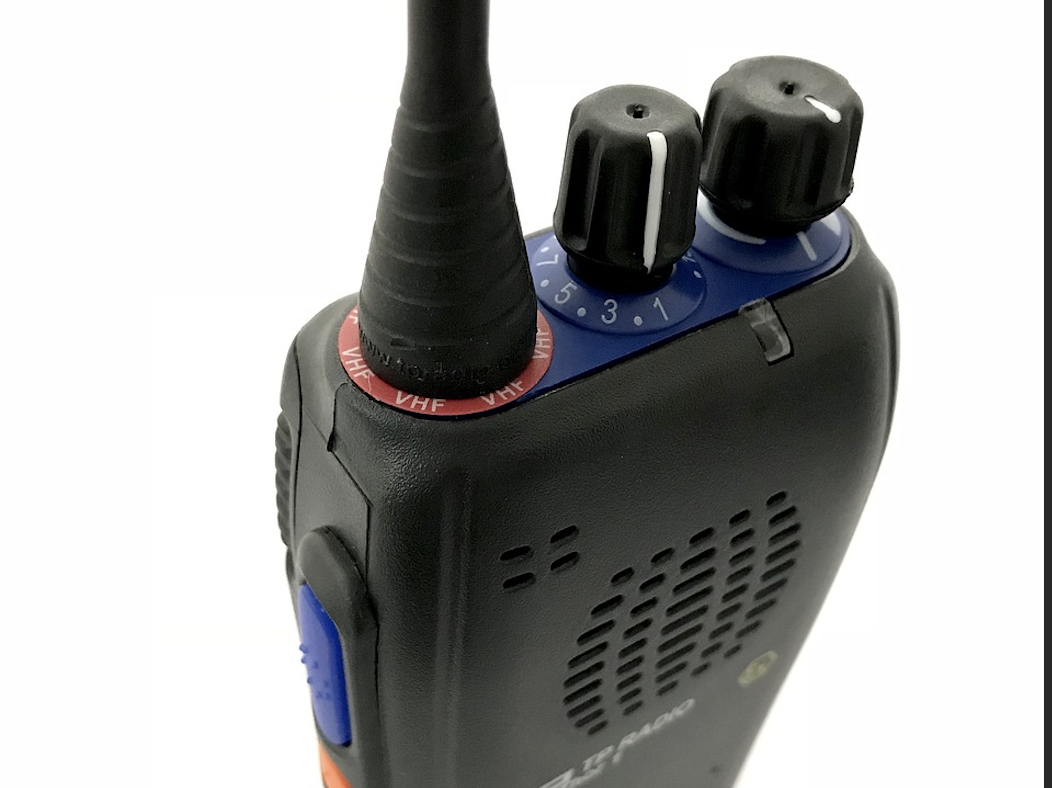UHF vs. VHF: The Differences Between Two-Way Radios
Two-way radios are essential equipment in dynamic situations, and choosing the right type is crucial. Today, we will explore the differences between UHF and VHF radios and the best applications for each type of radio frequency band.
When deciding between UHF and VHF, several factors come into play. Both types have their advantages and disadvantages, but the choice ultimately depends on the environment and specific needs, including coverage range and signal penetration.
From the congested buildings in heavily-populated cities to the openness of rural highways, farmland and deep nature, there’s an option for all needs.
In this article, we will provide an overview of UHF and VHF radios and focus on the situations where each type excels.
An Overview
UHF (Ultra High Frequency) radios operate in the frequency range of 300 MHz to 3 GHz. They have a shorter broadcast range than VHF radios but offer better obstacle penetration, making them suitable for environments with buildings and other barriers.
VHF (Very High Frequency) radios operate in the frequency range of 30 MHz to 300 MHz. They have a longer broadcast range, making them ideal for open spaces. However, they are more susceptible to interference barriers.
Advantages and Disadvantages
Neither UHF nor VHF is fundamentally superior, but determining which is the right option does require a clear look at the advantages and disadvantages of each.
UHF radios perform better through barriers like steel, concrete and wood. They are generally a better option for city and indoor use. UHF, which have a shorter antenna, are usually compact in size, making them extremely easy to carry around on foot. But, UHF radios use more battery life and are generally more costly. They also don’t have as much range.
VHF radios have a significant range, so they are generally a better option for outdoor use, especially in flat, rural environments or over water. Despite being able to reach longer distances, the line of communication is more likely to be interrupted, limiting the scope of what operations VHF radios are best for. The antenna is longer and more floppy, making them slightly more bulky and awkward. The battery life is longer for VHF radios, which makes them a lot less reliant on being recharged. They are also typically cheaper.
Typical Applications for Each Type
UHF radios are commonly used in city and indoor environments. They are suitable for organizations such as:
- Warehouses, casinos, and security teams for large events: UHF radios perform well in dense and rapidly changing environments, where interference from walls and other barriers is a concern.
- Schools and hospitals: These establishments often have multiple buildings and structures, requiring radios capable of penetrating potential obstacles.
- Public Safety: UHF radios ensure clear communication for police officers, firefighters, and emergency medical services in densely populated areas and unpredictable environments.
VHF radios are commonly used in outdoor and open environments. They are suitable for organizations such as:
- Farming: VHF radios are essential for effective communication in vast agricultural fields.
- Maritime: Boats and ships rely on VHF radios for communication with other vessels and people on land, making them crucial for logistics and emergencies.
- Search and rescue teams / Outdoor enthusiasts: VHF radios offer reliable communication capabilities for hikers, hunters, fishermen, and search and rescue teams operating in remote and potentially dangerous areas.
Contact TX RX Today
We hope this post provided insights into choosing the right two-way radio for your needs. If you’re ready to explore your options further, TX RX is here to help. With almost 50 years of experience, TX RX is an industry leader in Land Mobile radio. We are a trusted supplier for various sectors that require radio communications, specializing in VHF, UHF, and other frequency bands.
At TX RX, we adhere to ISO 9001 regulations, ensuring that all our parts and practices meet the highest standards. We provide customized, individualized solutions for every project.
Contact our professional support team today to get in touch, set up a demo, or request a quote.

